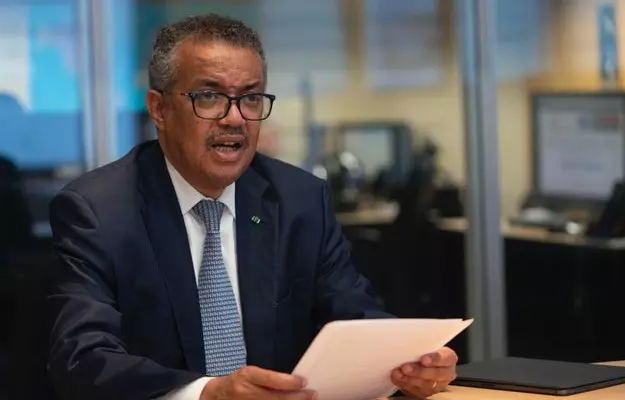The director-general of the World Health Organization (WHO) Dr Tedros Adhanom Ghebreyesus, on 29 June sounded another warning about the global pandemic of COVID-19 having accelerated once again in several countries, after a brief period where cases appeared to have been dropping.
In his remarks at the media briefing from the world's governing body on health, Dr Ghebreyesus acknowledged the efforts being made by countries all over the world by implementing "unprecedented measures to suppress transmission and save lives", by introducing lockdowns, shutting down places of public gatherings, borders, airports and much more.
"The critical question that all countries will face in the coming months is how to live with this virus. That is the new normal," Ghebreyesus said in his address.
However, as countries emerge from the restrictions on the movement of people and resume activity, cases have begun to rise as well.
Since the outbreak of the new coronavirus infection in Wuhan, China, late last year, the virus has spread to all parts of the world with more than 10 million people having been infected by it, leaving half a million dead in its wake. In India alone, over 566,000 infections have been recorded and more than 16,000 people have lost their lives in the country that has become the fourth worst-hit country in the world by this infectious disease.
Read more: COVID-19 India timeline
The date 30 June marks six months since the WHO received the first reports of an unknown pneumonia-like disease in China. In the intervening six months, public healthcare systems of major economies have also been crippled by the rise of this respiratory infection.
Read more: COVID-19 timeline
"The pandemic has brought out the best and the worst of humanity," he said. All over the world, we have seen heartwarming acts of resilience, inventiveness, solidarity and kindness. But we have also seen signs of stigma, misinformation and the politicization of the pandemic."
Ghebreyesus also announced that the Solidarity Response Fund, an initiative by the WHO, has raised over US$223 million to support the Solidarity Trials and Solidarity Flights, the former an effort to fast-track research for the development of drugs for the treatment of COVID-19, and the latter to ship test kits and PPEs (personal protective equipment) to several countries.
The WHO director-general also said the following five-pronged strategy must be prioritized by every country of the world for now to avoid more loss of life.
- Empower communities: Spread information and empower rural and urban communities to practise safety measures such as physical distancing, hand hygiene, covering coughs, staying home if sick, wearing masks and the sharing of information only from reliable sources, in order to avoid engaging in rumour-spreading. (Read more: WHO five steps to fight COVID-19)
- Suppress transmission: Beginning with health workers who must have access to proper training and PPEs, improving surveillance activities to identify cases and clusters through contact tracing and effective quarantining. (Read more: Study shows herd immunity may be possible earlier)
- Save lives: Stress on the practice of early identification which is key in saving lives through providing oxygen therapy and emergency medications to those with severe or critical levels of the disease. This also means paying special attention to high-risk groups that include the elderly and those living with comorbidities.
- Accelerate research: Countries across the world have been hard at work in developing different treatment methods through research. Finding out the best and most accessible treatment options for respective countries remain paramount in this battle against the virus. (Read more: After Fabi Flu, Covifor and Cipremi enter India to tackle COVID-19)
- Political leadership: The WHO director-general stressed on national unity and solidarity among countries of the world in order to effectively launch a collective defence against COVID-19 which is critical in reducing transmission and deaths, thereby minimizing the financial and social impact on communities.
Despite the efforts made by public health authorities by countries all over the world, "this is not even close to being over," said Ghebreyesus. He stressed on a commitment from all countries towards universal health coverage, which for the WHO is the "cornerstone of social and economic development" and critical in building a safer and greener world for the future.















